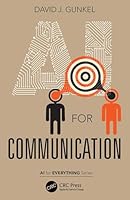
Adversarial Deep Learning in Cybersecurity: Attack Taxonomies, Defence Mechanisms, and Learning Theories
- Length: 319 pages
- Edition: 1
- Language: English
- Publisher: Springer
- Publication Date: 2023-03-07
- ISBN-10: 3030997715
- ISBN-13: 9783030997717
- Sales Rank: #7228699 (See Top 100 Books)
A critical challenge in deep learning is the vulnerability of deep learning networks to security attacks from intelligent cyber adversaries. Even innocuous perturbations to the training data can be used to manipulate the behaviour of deep networks in unintended ways. In this book, we review the latest developments in adversarial attack technologies in computer vision; natural language processing; and cybersecurity with regard to multidimensional, textual and image data, sequence data, and temporal data. In turn, we assess the robustness properties of deep learning networks to produce a taxonomy of adversarial examples that characterises the security of learning systems using game theoretical adversarial deep learning algorithms. The state-of-the-art in adversarial perturbation-based privacy protection mechanisms is also reviewed.
We propose new adversary types for game theoretical objectives in non-stationary computational learning environments. Proper quantification of the hypothesis set in the decision problems of our research leads to various functional problems, oracular problems, sampling tasks, and optimization problems. We also address the defence mechanisms currently available for deep learning models deployed in real-world environments. The learning theories used in these defence mechanisms concern data representations, feature manipulations, misclassifications costs, sensitivity landscapes, distributional robustness, and complexity classes of the adversarial deep learning algorithms and their applications.
In closing, we propose future research directions in adversarial deep learning applications for resilient learning system design and review formalized learning assumptions concerning the attack surfaces and robustness characteristics of artificial intelligence applications so as to deconstruct the contemporary adversarial deep learning designs. Given its scope, the book will be of interest to Adversarial Machine Learning practitioners and Adversarial Artificial Intelligence researchers whose work involves the design and application of Adversarial Deep Learning.
Cover Front Matter 1. Adversarial Machine Learning 2. Adversarial Deep Learning 3. Adversarial Attack Surfaces 4. Game Theoretical Adversarial Deep Learning 5. Adversarial Defense Mechanisms for Supervised Learning 6. Physical World Adversarial Attacks on Images and Texts 7. Adversarial Perturbation for Privacy Preservation Back Matter
1. Disable the AdBlock plugin. Otherwise, you may not get any links.
2. Solve the CAPTCHA.
3. Click download link.
4. Lead to download server to download.





